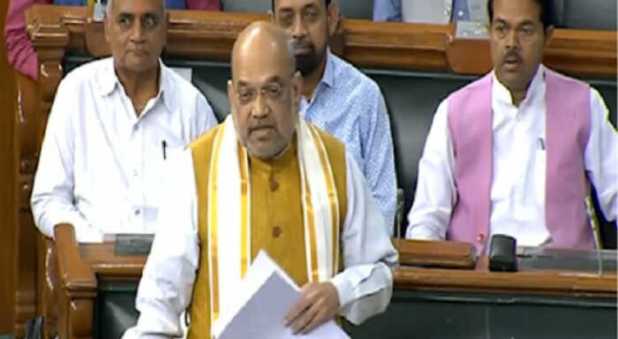
New Delhi, April 4 : A bill that empowers police to record and store physical and biological samples of a person for identification and investigation in criminal matters and preserve such records, was passed by the Lok Sabha on Monday, with Home Minister Amit Shah saying that it would help in improving law and order and internal security. Shah, replying to a debate on the Bill, dismissed the Opposition charges that the Bill was unconstitutional, as it takes away the right to freedom, or violates human rights. “Those who are talking about human rights, they should also worry about the human rights of those who are victims of those criminals,” Shah said, as he tore into the arguments made by the Opposition leaders. “You are worried about thieves and rapists… you are talking about their human rights. This is the Narendra Modi government, people who live by the law, it is the government’s responsibility to take care of their human rights. Human rights have many aspects,” he said. He further said that there is “no logic” in opposing the Bill, as it aims at empowering police with technology to improve the rate of proving crimes. “Crime and criminals have both changed. if we do not equip police with modern technology, such systems cannot work anymore. They may think it is too soon, I think it is too late,” he said. Moving the Bill for discussion earlier, Shah had said the government is also formulating a ‘new model prison manual,’ which will cover the concerns raised over the proposed law. Shah also said that police was forced to resort to “third degree” due to lack of evidence, and said, “Modi government believes that investigation should not be done on the basis of third degree, but on the basis of technology.” He further said that India is not behind any country in Human Rights, and accused the Opposition of having a “foreign concept” of human rights. “I am not ready to accept that we are behind any other country in Human Rights, but those who say that, I want to give Britain’s example. Their biological information bank is the biggest in the world… “I am sharing this information for people who come here with a foreign concept of human rights, which I don’t agree with,” he added. The Bill was passed through voice vote. All amendments given by Opposition MPs were either withdrawn or defeated. The Bill empowers police to record and store ‘measurements’ of a person for identification and investigation in criminal matters and to preserve such records. The ‘measurements’ defined in the Bill include finger print, palm print, foot impression, photograph, iris or retina scan and physical and biological samples. The Bill empowers National Crime Records Bureau of India to collect, store and preserve the record of measurements, and for sharing, dissemination, destruction and disposal of records. It also empowers a Magistrate to direct any person to give measurements, and further empowers police or prison officer to take measurement of any person, who resists or refuses to give measurement, Home Minister Amit Shah said in the Statement and Purpose of the Bill. The data collected under the Bill can be stored in digital format for 75 years, he added. So far, under the Identification of Prisoners Act, 1920, the term ‘measurement’ was limited to finger impression, footprint of a limited category of convicted and un-convicted persons, and photographs on order of Magistrate. AO RJ
